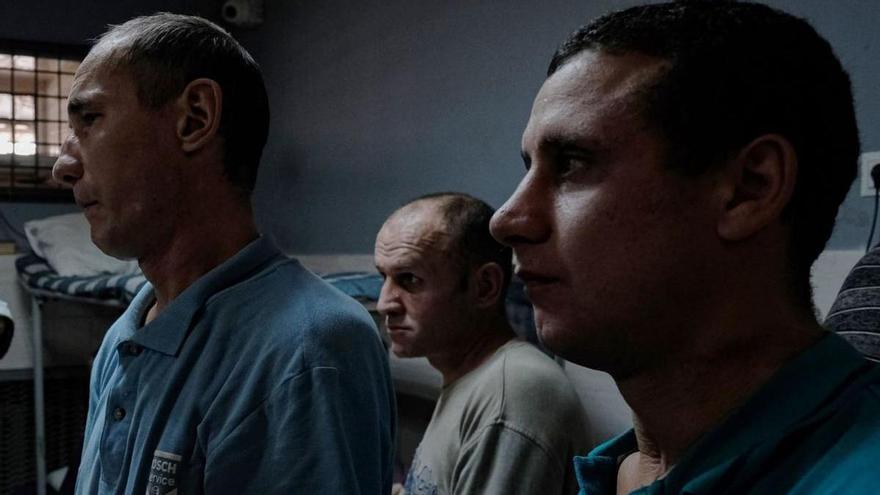The sudden incursion of Ukrainian forces into Kursk (a region filled, like Crimea, with immense historical symbolism for Russia) is the first time – since World War II – that a foreign army has penetrated Russia.
While Putin’s narrative dismissed the attack as a “large-scale provocation,” Kyiv said its main goal was to stop Russian artillery attacks from the Kursk region on Ukrainian territory, and that it did not want to permanently hold onto the Russian territory it had seized. The Ukrainian president’s top adviser, Mykhailo Podolyak, was more blunt: “It is a response to the Kremlin’s mistaken belief that they can attack Ukraine with impunity.” What seems beyond doubt is that Zelensky’s bold strategy of breaking the front where no one expected it—backed by his top military commander, General Syrsky—will seek to gain an advantage—a bargaining chip—in the face of a military in future, final negotiations aimed at reaching a “territorial peace” agreement to end the war.
The operational surprise—which shocked the world—could have been factored into the American political calendar and a decisive factor, such as the arrival of F-16s equipped with air-to-ground capabilities in Ukraine. It is too early to assess a risky maneuver, so it is too early to speculate on how the operation will end, because the intentions are not clear, nor are the opportunity costs, although history shows that eventually, the Russians will gather their forces to respond forcefully.
Faced with what some consider the audacity — bordering on recklessness — of launching a risky ground offensive against one of the world’s most powerful militaries, others have praised the nimbleness of asymmetric tactics (shock attacks using a small, mobile force) as being able to compensate for Ukraine’s weakness.
The fourth time for the Kremlin
Once again, Ukraine’s determination to resist Russian aggression has been demonstrated, discrediting those who claim that this aggression is a futile cause. With a population far smaller (45 million) than its adversary (145 million), the invaded country has difficulty recruiting troops; its own resources are scarce, and its reliance on supplies from the West is almost complete.
The incursion highlights some of Russia’s weaknesses: poorly defended borders, poorly armed troops, and conscripts with little or no military training. The raid undermined Vladimir Putin’s authority, but it did not undermine his grip on power.
Since the February 2022 invasion, this is the fourth time the Kremlin has conceded, highlighting the weaknesses of a vertical authoritarianism that operates largely on fear and punishment. Previous events were: the failed attempt to overthrow the government in Kiev; Prigozhin’s “Putin’s chef” takeover of Rostov-on-Don with Wagner’s march on Moscow, virtually unopposed, showing Ukrainians how easy it is to invade Russian territory; and the Islamist attack on the Crocus City Hall.
The faltering military response (a top-down control system that does not allow for quick and decisive action) has revealed an inability to respond with actions that match the Kremlin’s bellicose rhetoric.
As the London-based Royal United Services Institute puts it: “Putin expects others to do the hard work, takes credit for everything that goes right and blames others for everything that goes wrong.” Does this mean the tsar hides in crises?
Perhaps his most important miscalculation was the so-called “special military operation,” a war without attributes, believing that it would be enough to threaten a nuclear response to make the world bow to his plans, knowing that he would not have the means to wage a conventional war against NATO, if the alliance rushed to help Ukraine.
Pentagon Weapons
Some describe the ban on using Pentagon-supplied weapons to attack military targets in Russia, in order to avoid World War III, as an exercise in irony, because this approach helped prolong the terrible war of attrition.
Fortunately, he did not use it, but he did not back down from his hardline position—that Ukraine must cede more territory to Russia and abandon NATO membership as a condition for peace—which he has maintained in relation to possible peace talks.
Related News
In response to the Kremlin’s hypocritical complaints about an illegal invasion of Russian territory, the White House has responded that all Putin has to do is order the withdrawal of Russian forces from sovereign Ukrainian territory. The longer Ukraine holds out in Kursk, the more likely Putin will see no alternative but to sit down and negotiate. But without more proactive support from the West, the Ukrainian incursion will have only limited success.
The United States and Europe have a moral obligation to give Ukraine every means possible to end the war in a position of strength and as a functioning, prosperous democracy allied with the West. What is clear is that the surprise attack unsettled Putin and changed the war, though the lack of clarity adds uncertainty to the underlying motivations.

“Freelance social media evangelist. Organizer. Certified student. Music maven.”










